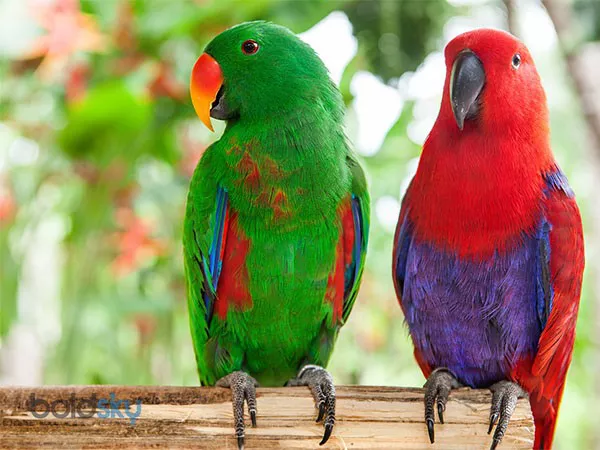The world of tortoises is vast and fascinating, with each species having its own unique dietary preferences, care requirements, and behaviors. Among the many species of tortoises, the Red-Footed Tortoise (Chelonoidis carbonarius) stands out as one of the most popular and widely kept pet tortoises. Known for their striking red or orange markings on their legs, the Red-Footed Tortoise is native to the forests and grasslands of South America.
As tortoises become increasingly popular as pets, one question often arises: “Can Red-Footed Tortoises eat apples?” The answer to this question involves understanding their natural diet, digestive system, and the nutritional benefits and risks associated with feeding them fruits such as apples. In this article, we’ll explore the dietary needs of Red-Footed Tortoises, examine whether apples are a suitable treat for them, and discuss important considerations when offering fruits like apples to your pet tortoise.
1. Understanding the Red-Footed Tortoise’s Natural Diet
Before we delve into whether apples are safe for Red-Footed Tortoises, it’s important to first understand the type of diet these tortoises are adapted to in the wild. In their native habitats in South America, Red-Footed Tortoises are omnivores. This means that they eat a combination of plant-based foods and animal matter. Their diet primarily consists of:
Fruits: Red-Footed Tortoises are opportunistic feeders and will consume a variety of fruits when available. These can include berries, bananas, papayas, and other tropical fruits.
Flowers: They also enjoy eating the flowers of certain plants and trees, which provide additional nutrients.
Vegetation: Leafy greens, grasses, and other vegetation make up a significant portion of their diet.
Insects and Small Invertebrates: In the wild, Red-Footed Tortoises will eat small insects, snails, and even carrion. These provide protein, which is essential for their growth and overall health.
In captivity, the diet of a Red-Footed Tortoise can be supplemented with fruits, vegetables, and even small amounts of animal matter like eggs or lean meats. However, it is essential to ensure that their diet is well-balanced and not too reliant on sugary or fatty foods, which can lead to health issues over time.
2. Are Apples Safe for Red-Footed Tortoises?
Now that we have a better understanding of the natural diet of a Red-Footed Tortoise, let’s focus on the question at hand: Can Red-Footed Tortoises eat apples? The short answer is yes, Red-Footed Tortoises can eat apples, but there are important considerations to keep in mind.
Nutritional Value of Apples
Apples are a nutritious fruit that can offer several health benefits to your tortoise in moderation. Here’s a look at the key nutrients found in apples:
Fiber: Apples are a good source of dietary fiber, which is important for maintaining healthy digestion in tortoises. Fiber helps regulate bowel movements and promotes a healthy gut.
Vitamins: Apples contain vitamin C, which plays a role in immune function, and vitamin A, which is important for eye health and cell function.
Antioxidants: Apples contain antioxidants like flavonoids, which help reduce oxidative stress and inflammation in the body.
Natural Sugars: Apples also contain sugars, which can provide a quick energy boost. However, too much sugar can contribute to obesity, diabetes, and other health problems in tortoises.
The Benefits of Apples for Red-Footed Tortoises
While apples are not a natural part of the tortoise’s diet in the wild, they can still be beneficial when offered as an occasional treat. Here are some of the potential benefits of feeding apples to your Red-Footed Tortoise:
Variety in Diet: Offering a variety of fruits, including apples, can help stimulate your tortoise’s appetite and ensure they’re getting a broad spectrum of nutrients. Red-Footed Tortoises are known to enjoy fruit, and apples are one of the more readily available fruits that many tortoises find appealing.
Hydration: Apples have a high water content, which can help with hydration, especially if your tortoise is not drinking enough water on its own. This is particularly important for tortoises, as dehydration can lead to serious health issues such as kidney problems and shell abnormalities.
Digestive Health: The fiber in apples can aid in digestion and prevent constipation, which is a common issue in pet tortoises. Regular bowel movements are a sign of a healthy digestive system, and fiber plays a key role in this process.
The Risks of Feeding Apples to Red-Footed Tortoises
Despite the benefits, there are some risks associated with feeding apples to Red-Footed Tortoises, and it’s important to understand these before you offer apples as part of their diet. Here are the primary concerns:
Excess Sugar: Apples contain natural sugars, and while these sugars are not harmful in small amounts, they can lead to weight gain, obesity, and other health issues if fed too frequently or in large quantities. Tortoises are not designed to consume high-sugar foods regularly. In the wild, their diet consists of low-sugar fruits and plants.
Seeds and Pits: Apple seeds contain small amounts of cyanide, a toxic substance. While the levels are very low and unlikely to cause harm if a tortoise consumes a few seeds, it is always better to remove them before feeding apples to your pet. Over time, the accumulation of even small amounts of cyanide could pose a risk to your tortoise’s health.
Too Much Fruit: While fruits like apples are tasty and nutritious, they should only be offered in moderation. A diet high in fruit can disrupt the balance of nutrients, leading to vitamin imbalances or digestive issues. Too much fruit can also replace the more nutritious parts of their diet, such as leafy greens and vegetables.
Pesticides and Chemicals: Apples, like many fruits, can contain pesticide residues and other chemicals if they are not grown organically. These chemicals can be harmful to your tortoise. To mitigate this risk, always wash apples thoroughly or, better yet, opt for organic apples that are free from pesticides.
3. How to Feed Apples to Your Red-Footed Tortoise
If you decide to feed apples to your Red-Footed Tortoise, there are some simple guidelines you can follow to ensure it’s a safe and healthy treat:
Step 1: Choose a Safe Apple
When selecting apples for your tortoise, try to choose an organic variety if possible, as this reduces the likelihood of pesticide contamination. Apples with thick skins are generally better than those with thin skins, as they are less likely to be treated with chemicals. Some of the best apple varieties for tortoises include Fuji, Gala, and Granny Smith apples.
Step 2: Wash the Apple Thoroughly
Even if you choose an organic apple, it’s essential to wash the fruit thoroughly to remove any dirt, pesticides, or wax coating. A simple rinse under cold water is usually sufficient.
Step 3: Remove the Seeds
Cut the apple into small, manageable pieces and remove the seeds. While a few seeds won’t likely harm your tortoise, it’s better to err on the side of caution and eliminate the potential risks posed by cyanide.
Step 4: Serve in Moderation
Offer small pieces of apple to your tortoise as an occasional treat. A slice or two, once or twice a week, is more than enough. Remember that fruits should only be a small part of their overall diet. The bulk of their food should consist of leafy greens, vegetables, and a small amount of protein.
Step 5: Monitor Your Tortoise’s Health
After introducing any new food into your tortoise’s diet, keep an eye on their behavior, eating habits, and waste production. If you notice any signs of digestive upset, such as diarrhea or constipation, reduce or eliminate the apples from their diet and consult a veterinarian if necessary.
4. Other Fruits to Offer Your Red-Footed Tortoise
If your Red-Footed Tortoise enjoys apples, they may also enjoy other fruits as part of their diet. Some suitable fruits for tortoises include:
Papaya: This tropical fruit is high in vitamins and enzymes, which can aid digestion.
Bananas: Bananas are a good source of potassium and are enjoyed by many tortoises. However, they should also be fed in moderation due to their high sugar content.
Mango: Another tropical fruit that can be offered in moderation, mango provides vitamins A and C.
Berries: Strawberries, raspberries, and blackberries can be offered as small treats. These fruits are low in sugar compared to other fruits.
Pineapple: Pineapple is high in vitamin C and can help with hydration, but it should also be offered sparingly due to its high sugar content.
Conclusion
In conclusion, Red-Footed Tortoises can eat apples, but they should only be offered as an occasional treat and in moderation. Apples provide a variety of nutrients, including fiber, vitamins, and antioxidants, but their high sugar content and the potential presence of seeds mean that they should not make up a significant portion of your tortoise’s diet. Always remove the seeds, wash the fruit thoroughly, and monitor your tortoise’s health to ensure they are benefiting from the fruit without any adverse effects.
Ultimately, the best diet for your Red-Footed Tortoise consists of a balance of leafy greens, vegetables, fruits, and the occasional protein source. By offering apples and other fruits sparingly, you can provide your tortoise with a healthy, varied diet that supports their well-being for years to come.
Related Topics:






















